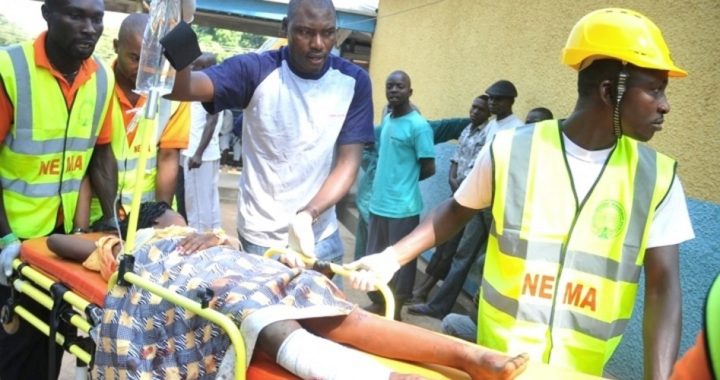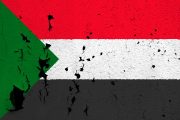
If the definition of the word “terrorist” has seemed somewhat flexible to many Americans in recent years, that state of befuddlement is shared by the U.S. government. The difficulties of defining a “terrorist” were on display on Capitol Hill when a high-ranking State Department official declared one of the most violent Islamist organizations in Africa to be a “terrorist” organization, while explaining that it was not a Foreign Terrorist Organization (FTO).
As Penny Starr recently wrote in an article for CNSNews, when it comes to the Nigerian Jihadist group Boko Haram, being a terrorist organization in a foreign country does not actually make that organization an FTO—at least in State Department logic. In Starr’s words:
The administration on June 21 listed three Boko Haram leaders as “specially designated global terrorists” (SDGTs) but stopped short to designating the group as an FTO under U.S. law, a step some Republican lawmakers have long been urging.
Individuals and entities listed as SDGTs have any assets they may hold in the U.S. frozen, and Americans are prohibited from engaging in transactions with them.
Appearing before the House Foreign Affairs subcommittee on Africa, Global Health and Human Rights on Tuesday, Johnnie Carson, assistant secretary of state in the Bureau of African Affairs, spoke about the decision.
“Before we prescribe actions, it is important that we understand what Boko Haram is and what it is not,” he said in his prepared remarks. “The truth is that our understanding is limited at best.
The limitation of Carson’s understanding of the terrorist nature of Boko Haram became abundantly clear when Rep. Chris Smith (R–N.J.) confronted him by declaring the Jihadist group to be, in fact, a terrorist group. As Starr quotes Carson:
“Boko Haram’s emergence as a terrorist organization in Nigeria predates the current government, and irrespective whether there is a Christian leader or a Muslim leader in the country, as long as the social, economic problems exist in the North to the extent that they do, there will be a reaction which may in fact — as this one does — take on political consequences,” he said.
As reported previously for The New American, there is little doubt that Boko Haram is an Islamist terrorist organization. The Jihadist group murdered 450 people in 2011 and had already killed another 620 in the first half of this year. Boko Haram regularly targets Christian churches and government officials as it wages its war to purge northern Nigeria of any non-Muslim presence as it seeks to impose sharia law on the inhabitants of that region.
But as Starr reports, the FTO designation is one which carries specific legal ramifications, while being described as a “terrorist” does not. As the State Department explains on the official FTO website:
Foreign Terrorist Organizations (FTOs) are foreign organizations that are designated by the Secretary of State in accordance with section 219 of the Immigration and Nationality Act (INA), as amended. FTO designations play a critical role in our fight against terrorism and are an effective means of curtailing support for terrorist activities and pressuring groups to get out of the terrorism business. …
The Bureau of Counterterrorism in the State Department (S/CT) continually monitors the activities of terrorist groups active around the world to identify potential targets for designation. When reviewing potential targets, S/CT looks not only at the actual terrorist attacks that a group has carried out, but also at whether the group has engaged in planning and preparations for possible future acts of terrorism or retains the capability and intent to carry out such acts.
Given the record of Boko Haram, and its express intentions for the future of Nigeria, it seems inexplicable that the organization would not be designated an FTO. Just how many people does an organization have to murder in an attempt to overthrow a government and impose sharia law before it becomes a terrorist organization? How, in the modern age, does a campaign to violently purge an entire region of a nation on religious grounds not count as terrorism?
Furthermore, it appears that Islamist terrorists in Kenya are adopting the tactics of the Nigerian group in their attacks on churches, even as Muslims in that country are attempting to block the government in Nairobi from adopting anti-terrorist legislation, even as Iranians are allegedly attempting to smuggle hundreds of pounds of explosives into the country to strike at Western targets within that nation. Bernard Momanyi reported for AllAfrica.com that Muslims were worried that anti-terrorism legislation outlawing all efforts to ‘intimidate’ the public would be detrimental to Muslims:
Among the changes they want is the definition of terrorism as outlined in the Bill to ensure security forces do not end up harassing people in the name of fighting terror.
“Any act that intimidates the public or a section of the public is considered an act of terrorism, it is in our view that the definition (be) redefined to include specific activities,” Director General of the group Fazul Mahamed said when they presented a memorandum to the Internal Security Ministry.
Though divided by great distances in Africa, Nigeria and Kenya face a similar problem posed by a religiously-diverse population in which Muslim terrorist organizations are threatening the stability of those nations. Many Americans would agree that U.S. intervention is clearly not the answer — the governments of Kenya and Nigeria have a responsibility to deal with their problems which their nations confront from domestic terrorism. However, with the State Department charged by law with the responsibility of designating FTOs, the position of the United States governments regarding Boko Haram is confused — at best — when government officials will not call a terrorist a “terrorist.”
Photo: In a Dec. 25, 2011 file photo, medical officials treat a victim of a bomb blast at a Catholic church near Nigeria’s capital at Suleja General Hospital in Suleja, Nigeria. The radical Muslim sect, Boko Haram, claimed the attack and another bombing near a church in the city of Jos: AP Images



